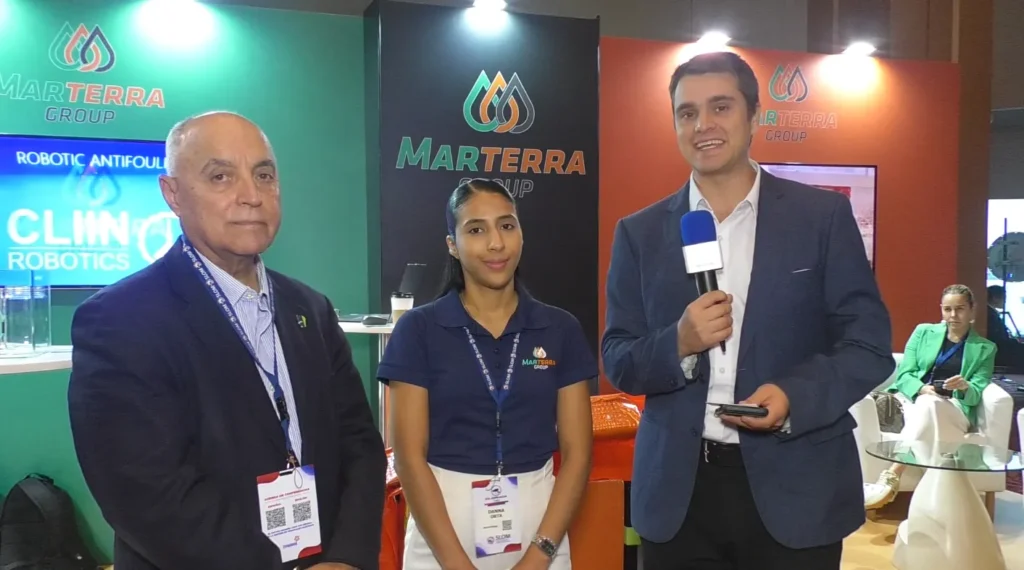During the SLOM 2025 event, held in Panama, Danna Estefanía Orta Pérez, manager of operations of Marterra Group, and Carlos Sagrera, representative for Latin America of ISCO (International Spill Control Organisation), shared details about the current challenges in dealing with environmental emergencies, especially those related to the control of oil spills in coastal and port areas.
One of the pillars most emphasized during the conversation was the importance of having properly trained personnel. Carlos Sagrera stressed that "equipment and materials, however sophisticated they may be, are useless without trained people". ISCO, through the International Maritime Organization (IMO)
issues certifications at three levels: operational, tactical and strategic. These allow training operators, supervisors and incident commanders to act under the highest international standards.
In this sense, Marterra has adopted these certifications as an essential part of its internal protocols, which guarantees efficiency in the field, and alignment with Mexico's National Contingency Plan, updated in December 2023.
Danna Orta explained that the company has skimmers, containment booms, absorbents and other tools necessary to intervene in maritime or terrestrial scenarios. But beyond the supplies, the differential factor is the response time.
Marterra keeps its personnel and equipment constantly available to ensure immediate activation in case of an emergency. This service is backed by contracts with terminals and clients that must comply with the requirements of the regulatory framework, which establishes that whoever pollutes must be prepared to act.
A prime example occurred in March 2025, when a crane collapsed on a vessel at a Mexican port terminal, causing a spill that required more than 10 days of continuous attention. Marterra' s team worked in a coordinated manner throughout the dock and waterfront area to contain and recover the waste, demonstrating its ability to manage prolonged incidents.
This type of events, although exceptional, coexist in a context where there are chronic spills in oil production areas. Such is the case of the Mexican Gulf and Pacific, where the company operates with a preventive and constant focus.

Marterra works closely with terminals and logistics operators who must demonstrate their ability to react to audits. Through defined communication channels (mail, direct call or emergency number), customers activate the protocol and the team takes action in the shortest possible time.
Carlos Sagrera explained that the legal framework in Mexico obliges companies with environmental risks to have a registered service provider available, such as Marterra, in order to comply with government inspections.
Another relevant aspect is that the company has opted for an approach that avoids the use of dispersants and chemical agents, so that it works only with containment techniques and physical recovery of the hydrocarbon; this methodology has been well received by public opinion and environmental authorities, especially SEMARNAT, which value less invasive practices for the marine ecosystem.
Carlos Sagrera explained that this model is considered "the most sustainable and acceptable way to operate" in terms of spill control, as it avoids adding additional contaminants to the affected ecosystem.
Marterra Group maintains permanent operations in several areas of the country. Although it has not currently expanded its operations outside Mexico, its presence in events such as SLOM marks a clear intention to integrate more Latin American markets.
For more content about SLOM 2025, please visit our LinkedIn profile.
Source: Inspenet.